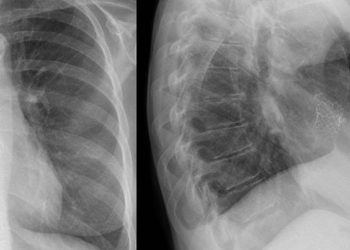Topiramate for prenatal antiseizure therapy is not associated autism spectrum disorder
1. In this retrospective cohort study, exposure to antiseizure medications was associated with a higher incidence of autism spectrum disorder (ASD) compared to general population data.
2. Restricted to children born to mothers with epilepsy, valproate, but not topiramate and lamotrigine, was associated with an increased risk of ASD compared to no medication exposure.
Evidence Rating Level: 2 (Good)
Study Rundown: Most female adults with epilepsy receive antiseizure medications throughout pregnancy. Prenatal exposure to valproate is associated with neurodevelopmental disorders such as ASD and attention deficit hyperactivity disorder. Lamotrigine, conversely, has not been associated with these risks. It is unclear, however, whether prenatal exposure to topiramate poses a safety risk for children. This cohort study in the United States aimed to investigate the association between topiramate treatment during pregnancy and the risk of ASD. Children born to mothers with epilepsy, overall, had a higher incidence of ASD compared to the general population without exposure to antiseizure medication. Within this subgroup, however, topiramate and lamotrigine did not demonstrate an increased risk of ASD compared to no exposure, whereas valproate exposure was associated with a higher ASD risk. Exposure to valproate at high doses and later in pregnancy carried a higher ASD risk. A substantial proportion of the cohort was lost to follow-up, which was compensated by the large cohort size. Overall, these results showed that valproate exposure, but not topiramate and lamotrigine, increased the risk of ASD among children born to women with epilepsy.
Click here to read the study in NEJM
In-Depth [retrospective cohort study]: The current cohort study, based on two healthcare utilization databases in the United States from 2000-2020, aimed to investigate the link between in-utero topiramate exposure and the risk of ASD among children. Valproate was used as a positive control, and lamotrigine was a negative control. The study population comprised persons of female sex between 12 and 55 years of age, who were linked with their liveborn children and had insurance coverage from at least 3 months before the estimated last menstrual period to one month after delivery. Exclusion criteria included children with chromosomal anomalies and major congenital malformations. Primary analysis focused on women with epilepsy indicated to receive antiseizure medications. In total, 4,292,539 eligible pregnancies were studied, including 2,469 exposed to topiramate, 1,392 to valproate, and 8,464 to lamotrigine during the primary exposure period. The median follow-up was two years, and over 400,000 children were followed for at least eight years. Across the entire cohort, the cumulative ASD incidence at 8 years was 1.89% for those with no exposure to antiseizure medications. The cumulative incidence of ASD was higher at 4.75%, 6.83%, and 3.65% for topiramate, valproate, and lamotrigine, respectively. Nevertheless, within the primary analysis restricted to mothers with epilepsy, the cumulative ASD incidence was 4.2% for those without exposure to antiseizure medications, 6.2% with exposure to topiramate, 10.5% for valproate, and 4.1% for lamotrigine. Compared to those without exposure in this subgroup, the weighted hazard ratio was 0.96 for topiramate (95% Confidence Interval [CI], 0.56-1.65), 2.67 for valproate (95% CI, 1.69-4.20), and 1.00 (95% CI, 0.69-1.46). Valproate exposure at higher doses and later in pregnancy was associated with a higher risk of ASD, whereas no differences were observed with topiramate and lamotrigine. Overall, these results showed that among children born to mothers with epilepsy, prenatal exposure to valproate, but not topiramate or lamotrigine, was associated with an increased risk of ASD.
Image: PD
©2024 2 Minute Medicine, Inc. All rights reserved. No works may be reproduced without expressed written consent from 2 Minute Medicine, Inc. Inquire about licensing here. No article should be construed as medical advice and is not intended as such by the authors or by 2 Minute Medicine, Inc.







